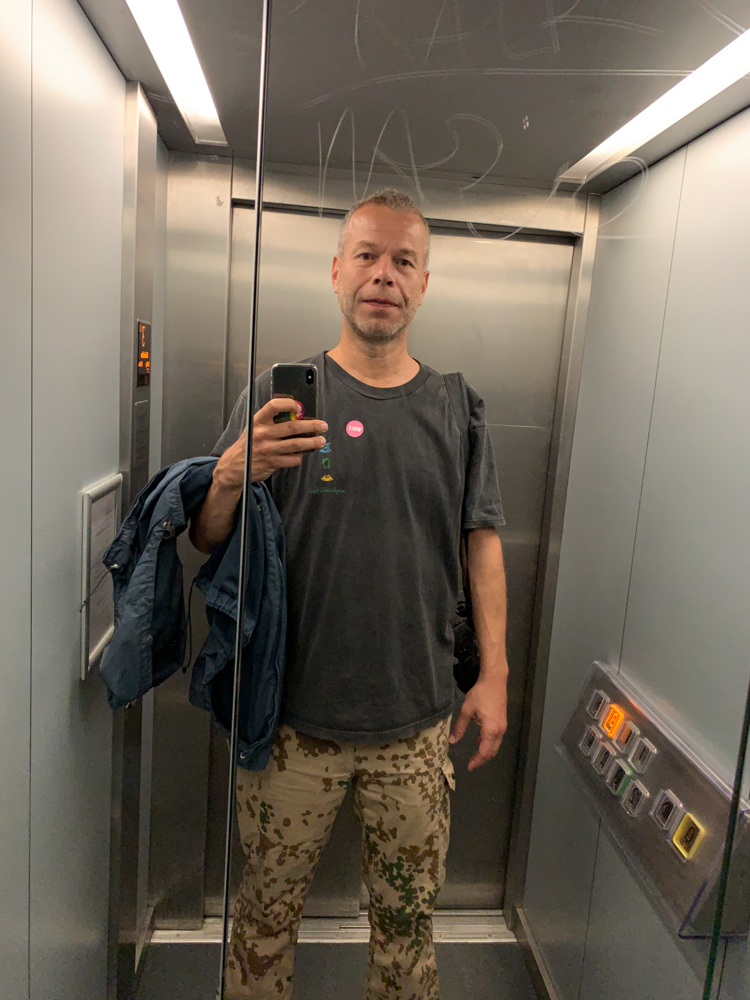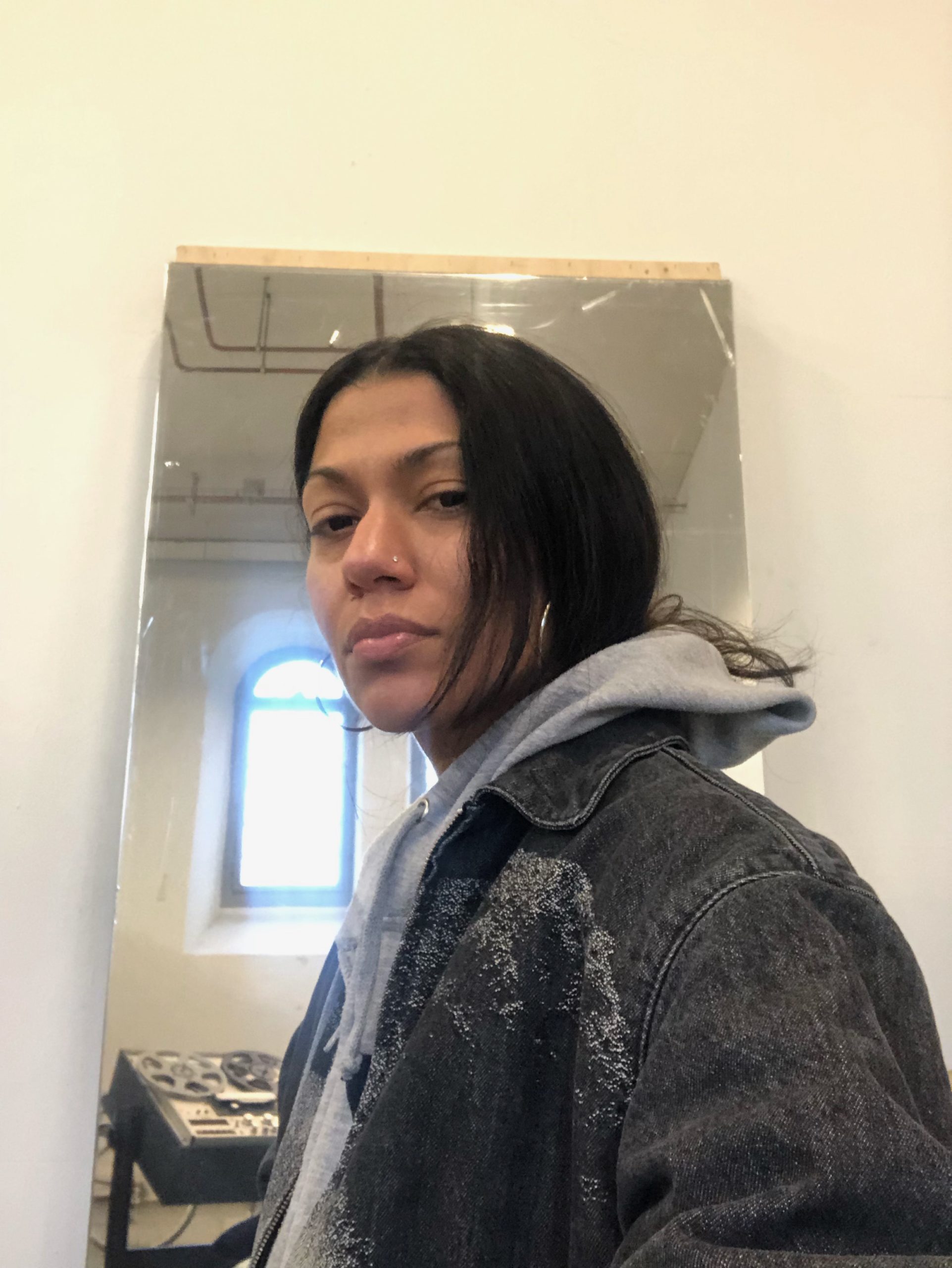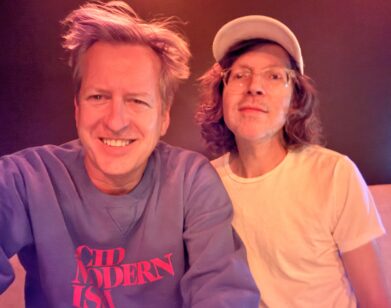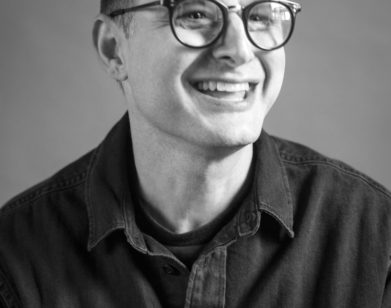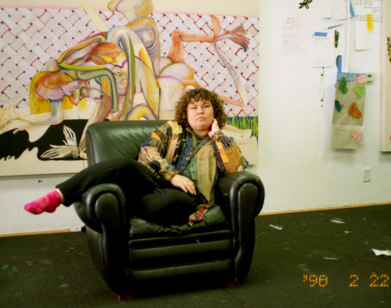Wolfgang Tillmans and Asma Maroof Combine Forces on 01
- Wolfgang Tillmans.
- Asma Maroof.
Wolfgang Tillmans and Asma Maroof have a long history. The pair first met on a drive to Malibu nearly a decade ago, and their friendship evolved into a creative collaboration when Tillmans later incorporated Maroof’s track “Smoke Alarm” into a Berlin installation focused on American music production. Most recently, the pair have reunited once again on behalf of REIF—a Berlin-based arts collective that bridges community activations and multimedia art projects. This winter, the collective released its first album, 01, a collaborative undertaking featuring sounds from electronic and counterculture icons including Tillmans and Maroof, as well as the likes of Tabloid Press, Sene, Cali Rose and others.
For Tillmans, the German-born artist known for photography and installation work that illuminates the contours of his immediate surroundings, 01 offered an opportunity to contribute to a collective sound. (It also dovetailed nicely with the release of his first album, Moon in Earthlight, out last month.) For Maroof, a DJ who developed her improvisational and experimental sound in L.A.’s underground electronic scene and has since turned her focus to composing, the project represented a chance to dabble once more in the kind of musical play she built her reputation on. To mark the release of 01, Tillmans and Maroof hopped on a Zoom call for a conversation about found versus staged sounds, art world camaraderie, and L.A. traffic.
———
WOLFGANG TILLMANS: I haven’t been on many music compilations. I’ve been in many group exhibitions though, and there is a certain camaraderie around it. I feel a similar sense of camaraderie here. It’s kind of cool, because neither of us are not firmly associated with REIF, but I feel happy to be a part of this big family.
ASMA MAROOF: Totally. When I listened to the compilation, I felt like all the songs were very different, but there’s definitely a common thread. It’s so cool to listen through it and trace how all these different artists operate, and see how everything connects. I loved being a part of this, it was really fun. You know when you’re playing music and a film is on in the background, and they sync up randomly? That’s my favorite thing, and that’s what this project felt like. Happy accidents.
TILLMANS: I wanted to say, it’s seven years ago that we met in L.A., and—
MAROOF: —Seven years? Oh my god!
TILLMANS: I know. It’s such a long time ago on paper, even though it feels so recent. It was 2014 and I was in town for the 25th anniversary party of Regen Projects, which has been my gallery since 1995, and I was excited to check out some of the new music that was emerging around that time. The label Fade To Mind stood out in particular—so I looked you up, because you were signed with them.
MAROOF: We met up and drove to Malibu right?
TILLMANS: Yeah! How did we end up doing that? Was it your idea?
MAROOF: I guess. I remember that we sat in traffic for a long time…sorry about that.
TILLMANS: I’m not normally one to hang out in Malibu, so you must have had a beach in mind to take photographs.
MAROOF: I think we were going quite frequently back then. Now it feels like a distant memory, but yeah, those were my Malibu years. [Laughs]
TILLMANS: After that, I picked one of your tracks, “Smoke Alarm” to include in this installation I made at Between Bridges in Berlin called “American Producers.” I included 15 American-produced tracks that asked the question, “What is so different, what is so modern about American production?” They included everything from a number one, chart-topping Quincy Jones production to your very underground track. At least, it was underground at the time.
MAROOF: It’s still underground. [Laughs] But hell yeah, that was so cool.
TILLMANS: You’ve gone many places since then.
MAROOF: I guess so. I live in Zurich now, it’s my third year living here and composing with Wu Tsang, Tosh Basco, and Josh Johnson at a theater called working at Schauspielhaus Zurich. It’s crazy to shift from the club space to the theater space, but it actually makes a lot of sense for me. Before I started making tracks, I was trying to go the vocalist route. Every time I would meet with people and show them my stuff, they’d be like, “This is weird! This is too weird!” I think my weirdness fits more in this world. I’m doing lots of film scores as well, so it’s all making more sense now.
TILLMANS: And how did the theater and the city welcome you? I know the German-language theaters are known for hiring lots of experimental talent and directors—sometimes it causes a scandal with the audience.
MAROOF: People seem to like us, and it doesn’t feel like there’s any backlash. It’s been all open arms, and we feel really grateful to have been given the space to create.
TILLMANS: I love Zurich, the lake and swimming. I always found it to be a very open-minded city, even though Switzerland has quite a different reputation.
MAROOF: You should come visit and see one of our shows—but definitely come in the summer. What’s going on behind you?
TILLMANS: I’m in my studio right now, and what you see behind me is not exactly supposed to be public. But I guess I’m not exactly being that discreet. It’s an architectural model of a museum exhibition I will be doing next year. With a big show, I set up the model over a year in advance, so that I can grow the show organically, and begin to think about the different spaces. It’s usually more work, but of course it can be infinitely more efficient, because it’s extremely environmentally unsound to ship lots of materials to a museum and then not end up using them. The model is not something I necessarily follow, but it familiarizes me, so that I can run loose later.
MAROOF: That’s so cool. I also was listening to your new record today—I didn’t even know you dropped a record, so congratulations! It’s really good. I was listening to it as I was walking in the snow. I was really floored by “Hope Of Life,” which has a heartbeat in it. Maybe it’s because of where I am in my life, but it really moved me.
TILLMANS: That’s the sound of a heartbeat in a vein, recorded with a cardiogram.
MAROOF: Is it yours?!
TILLMANS: It’s mine, yes. I mean, it just happens to be mine. But it is about my heart.
MAROOF: I was like, “Is he having a baby?!” That’s what it reminded me of.
[Both laugh]
TILLMANS: So you immediately recognized it as a heartbeat?
MAROOF: I did, and I thought it was like a baby ultrasound.
TILLMANS: Interesting, of course, not everybody recognizes it. I saw it as a kind of sound photography, which is really what field recordings are for me. I felt like I wanted to record it because, like a photograph, it can’t really be recreated. What happens in a recording studio is a performance, and I wanted to mix that with something more organic. So, this album is a mix of fully produced studio productions and found recorded sounds in nature or the street, with a few moments that are staged and controlled but still natural sprinkled in. That’s very much how my photography works, too. In some I haven’t interfered with the subject matter at all, some I’ve completely staged and set everything up, but then there’s lots in between.
MAROOF: And you’re giving pop vocals? I was like,”Ooooh!” You sound so good!
TILLMANS: I was actually wondering about your vocals—your track on the REIF 01 compilation is so dramatic. Are those vocals?
MAROOF: It’s just samples that I reconstructed. It’s from MDC1, the old dance song machine maker from the ‘90s. A lot of people used the sampler.
TILLMANS: And it has presets?
MAROOF: It has tons of sampler presets from back then. It’s funny because I used it once for an Adidas commercial, and they had to clear every sound on the machine. People were like, “Oh yeah, that synth! They stopped making it because it had clearance issues!” It has a lot of random shit, like the ESG UFO sound, on it.
TILLMANS: So the whole point of these songs is to express excitement.
MAROOF: Definitely. There’s tons of recordings of people laughing and making funny sounds, Things you wouldn’t imagine to be on a sampler… but I kind of love that. They’re so random.
TILLMANS: Well, it adds growing anticipation to the track. You’re like, “What’s happening now? Oh wow, this is excitement!”
MAROOF: I’m not so good at making drops—I never have been. You’ve seen me DJ, I don’t exactly know how to drop, so I’ll usually just cool out. I’ll build excitement and then cool out. But to each his own!
TILLMANS: Are you in the theater right now or at home?
MAROOF: I’m at the studio, working on Moby Dick.
TILLMANS: Which is the next production at the Schauspielhaus?
MAROOF: Yes, it will be. It’s Wo’s next film, and I’m scoring it. I have a question for you—night or day? For music or sound, or anything.
TILLMANS: It’s a very serious conundrum that I have, because I am actually a really good morning person—things sort of pop into my head in the morning. For example, the lyrics for “Certain Sensitivity,” that track of mine on the REIF compilation, popped into my head early in the morning. I find myself playing with words in the morning, but at the same time, the night is the only time when I can be alone at the studio and not be disturbed. I can spend hours editing pictures and editing books and exhibitions in the dark. So I have sort of two modes, and it’s a give and take. What about you?
MAROOF: I love that answer. When listening to your record, I was like, “Oh this feels so daytime.” On some of the tracks, you even sound like you’re walking.
TILLMANS: “The Possibility of a Happy Life”? I was on the street in New York.
MAROOF: I have been day time focused recently, but I understand what you mean about that quiet time, which I feel most at night.
TILLMANS: In Zurich are there good night options? I love the Odeon, but that’s not a proper night spot.
MAROOF: I haven’t been able to explore much, because right when we moved here the pandemic hit. The nightlife is not giving like it did. I went to one show, and saw Roy Ayers at a jazz club and that’s about it. Tell me where I should go! I really need go out more.
TILLMANS: So should I, but I’ve gotten used to staying in.
MAROOF: I know. We’re sad.
TILLMANS: I don’t think that’s what Interview wanted to hear!
[Both laugh]

